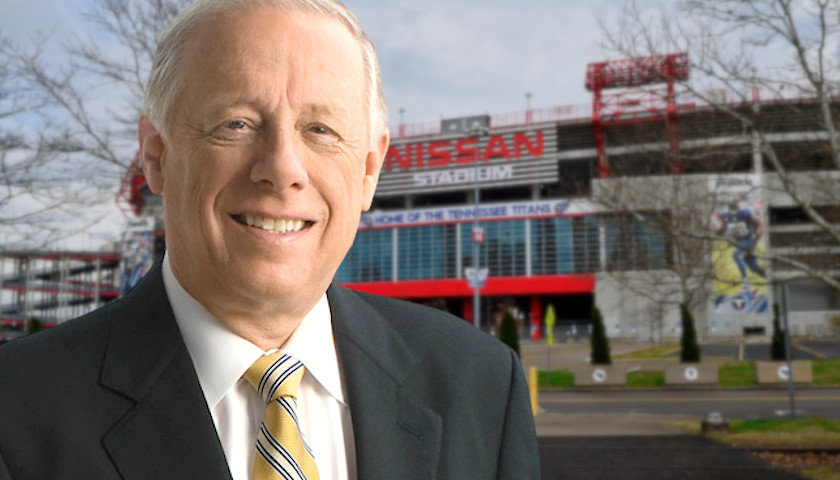Former Nashville Mayor Phil Bredesen admitted in 1997 that direct economic impact benefits couldn’t justify taxpayer funding for a football stadium.
Bredesen said in June of 1997, “I can’t justify building a football stadium on direct economic impact. The professors who make a living pooh-poohing that are right. But there are a lot of intangible benefits that make it more than easy to do.”
Economic impact benefits are often the main argument made in seeking public taxpayer funding for stadiums.
According to a case study titled, The NFL Oilers: A Case Study in Corporate Welfare, Nashville and the then-Oilers announced a deal to build a stadium in November 1995. The stadium capacity would be 67,000. The terms of the deal included that the then-Oilers would not have to lay out money to build the new stadium. Then-Tennessee Governor Don Sundquist supported using state taxpayer funds to bring the team to Nashville and build a stadium. The state paid in $55 million in construction bonds and $12 million more for road improvements.
Nashville footed a bill worth $144 million, with a guarantee of $70 million in net sales of personal seat licenses.
Prior to final approval, opponents of using taxpayer funds to build the stadium gathered the required amount of signatures to trigger a public referendum on the city’s portion of the deal. The “Yes for Nashville” campaign to use taxpayer funds to build the stadium won the day and the resolution passed 59%-41%.
The author of the 1998 case study was Raymond Keating, then-chief economist for the Small Business & Entrepreneurship Council.
The Tennessee Star previously reported that the cost of renovations to Nissan Stadium is likely $600 million and that Tennessee Titans’ officials have expressed their desire to do so. However, now there is a discussion on the subject of simply building a new stadium altogether, possibly with the help of public taxpayer funds.
Tennessee Titans officials wouldn’t say whether or not they’d ask for taxpayer help for funding a new stadium when contacted by The Star. Spokeswoman Kate Guerra said that the decision to build a new stadium has not occurred yet.
Metro Nashville’s finances may not be in a position to justify the expense of a stadium.
The Star previously reported that former Council Member-At-Large Steve Glover said last November that Metro officials were increasing the city’s debt too drastically and that Nashville was “the number one city in America with the highest debt per capita of the population.”
At the time, he also warned of a “massive 26 percent to 34 percent property tax increase” within two to three years.
As of this writing, it is unclear whether or not Mayor John Cooper, Metro Council, or members of the Tennessee General Assembly will propose using taxpayer funds to either assist with Nissan Stadium renovations or build a new stadium.
– – –
Aaron Gulbransen is a reporter at The Tennessee Star and The Star News Network. Email tips to [email protected]. Follow Aaron on GETTR.








